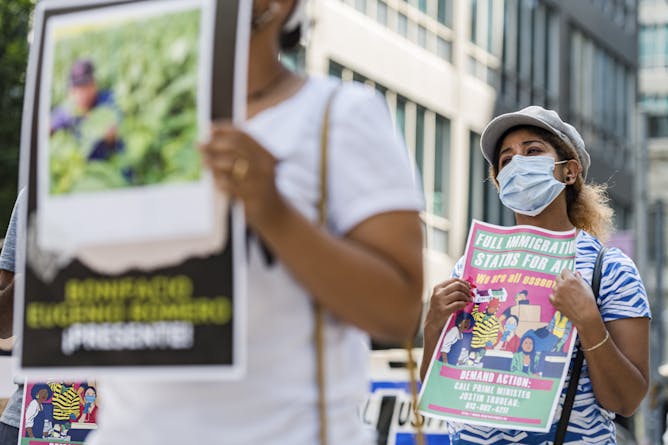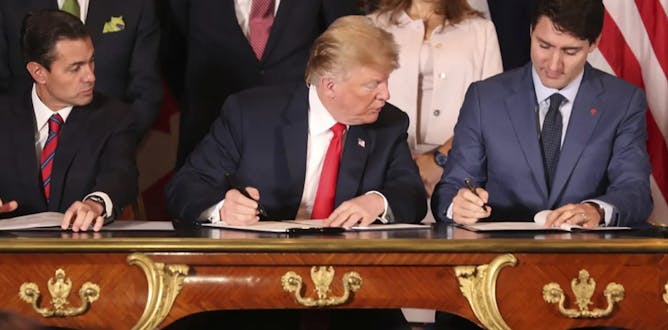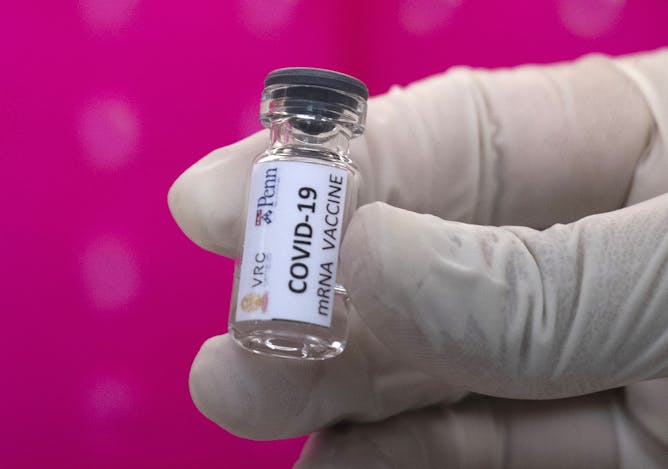|
Appointing a designated driver — someone who stays sober and makes sure the group has a safe way to get home — is a common strategy. The idea was introduced in the late 1980s to help combat drunk driving, and has been a successful public health strategy.
The social landscape has changed a lot since the 1980s. For example, cannabis is legal, everything gets documented on social media and there’s a global pandemic. It’s time to expand the designated driver concept beyond alcohol and a sober ride home. Today in The Conversation Canada, Jacqueline Lewis, associate professor of sociology, anthropology & criminology at the University of Windsor, explains how.
The idea behind Buddy Circles is to acknowledge this new landscape and mitigate the risks associated with it. A Buddy Guard abstains from alcohol, cannabis and other substances, but also keeps an eye out for things like overindulgence, spiked drinks and ill-advised photos or smartphone videos that could wind up making the wrong kind of splash on social media. In the time of COVID-19, the Buddy Guard also helps ensure that social distancing and face mask procedures are in place. It’s a risk-reduction strategy for safer nights out in 2020.
Also today:
All the best.
|

The concept of Buddy Circles expands the designated driver role to include broader substance use and other risks.
(Pexels/Martin Lopez)
Jacqueline Lewis, University of Windsor
Buddy circles expand on the concept of a designated driver, encompassing other substances and risks — including COVID-19 and social media — to build a harm mitigation strategy for the 21st century.
|

In order to contain a deadly virus, the COVID Alert app needs to go viral.
THE CANADIAN PRESS/Adrian Wyld
Joshua Gans, University of Toronto
Ironically, to encourage people to download the COVID Alert app, we need viral processes as we attempt to contain an actual virus. And that's a challenge when we're socially isolated.
|

Protesters attend a demonstration in support of migrant worker in front of the Immigration and Refugee Board of Canada in Toronto in August 2020.
THE CANADIAN PRESS/Christopher Katsarov
John Carlaw, Ryerson University
The federal government must make good on its throne speech language about making it easier for migrant workers to formally become Canadian by instituting a comprehensive regularization plan.
|

Many online users give consent for use of their data without worrying about the implications.
(Shutterstock)
Guillaume Desjardins, Université du Québec en Outaouais (UQO)
Our current digital era and reliance on technology favours information as a form of capital.
|

Then-president of Mexico Enrique Pena Nieto, U.S. President Donald Trump and Prime Minister Justin Trudeau sign the new Canada-U.S.-Mexico Agreement in Buenos Aires, Argentina. The agreement was ratified in April 2020 and came into force last July.
The Canadian Press
Brice Armel Simeu, Université du Québec à Montréal (UQAM)
The Canada-U.S.-Mexico Free Trade Agreement, which came into force in July 2020, puts more emphasis on the environment and gives greater authority in Canada in the matter.
|

Un technicien de laboratoire tient un flacon d’un candidat vaccin contre la Covid-19 dans le cadre d’essais au Centre de recherche Chula sur les vaccins, administré par l’Université Chulalongkorn à Bangkok, en Thaïlande, le 25 mai 2020.
AP Photo/Sakchai Lalit
Charles Weijer, Western University
Un vaccin contre la Covid-19 sera-t-il sûr ? Les essais sur les animaux et l’humain et la surveillance post-approbation donnent de bonnes raisons de croire qu’un vaccin approuvé sera efficace et sûr.
|
Politics
|
-
Jonathan D. Sarna, Brandeis University
The former justice received a Jewish funeral at the Supreme Court. But in other ways, Ginsburg's burial is breaking with traditional Jewish death rituals.
|
|
Arts
|
-
Alyce Mahon, University of Cambridge
His name has become a byword for deviancy and sexual cruelty. But Sade has also provided creative inspiration for generations of writers and artists.
|
|
Culture + Society
|
-
Jonathan Kanter, University of Washington
White people are often defensive when they're called out for these subtle snubs and insults. But researchers have found that microaggressions correlate with racial bias.
|
|